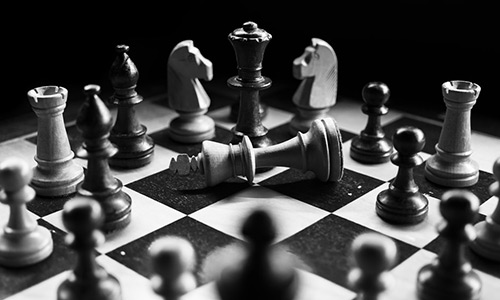In Afghan political literature, the political terminologies are not usually used accurately and so it causes a lot of confusions and misunderstandings. One of the political words which often misused is the “world great power or super power”. Historically, the term of “great power” was the first word which became prevalent among the diplomatic community in 18 century, but it took long time to be clearly defined in politics. This term was fully disappeared during the cold war because the US and Russia surpassed other great powers and there was need of some standards to differentiate them. Therefore, the term “super power” replaced with great power. Based on modern political literature, there is a three level definition about political powers including “super power”, “great power” and regional power while each one is clearly defined on the basis of certain criteria.
Firstly, Super power indicates to the highest political position which has the hardest criteria for a country to get such a place in the world. According to modern definition, super power is the country which has the world top military, political and economical power. Out of the three criteria, economy has a central role which backs both political power and also military power. Hence, those countries which have the top economic capability or top economic potential such as china and Japan are highly highlighted in political literature though Japan has a weak outlook towards reaching standards of a super power due to other reasons such as lack of having modern weapons, lack of having will for becoming super power and so lack of having weak geography.
In addition to three abovementioned criteria, there is a forth criterion which is laying claim for deserving such a position in the world while others accept such a claim. The super power also needs to play an active role in world providing security or world de-providing security. Given the aforementioned standards, British, France and also Russia were the world super power during the 19 century, but after the First World War, British, the US and Russia could maintain the position. After the second world war only the US and Russia remained in the position but after the Cold war only the US kept the position. However, the super power position has extremely challenged with the mutual-assured destructive weapons in modern era.
As aforesaid, the second power ranking is “great power”. In comparison to super power, the standard of great power is not much difficult and need not to have the highest capability in all sections. Thus, there is no need to have active role in providing or de-providing security in all parts of global community. The main criterion which differentiates the great power from regional power is only one thing; it is recognition of other countries as a great power. In the other words, in calculation of other powers it should be considered as if having great economic, political and military power and they usually have the potential of moving towards getting the position of super power. The great power also usually has a personal outlook and enthusiasm to move towards super power in the future. During the 19 century, the US and Japan was of the great powers but after the second world war Germany and Japan got position great power while France was a downgrading great power. During the cold war, China, Germany Japan, British and France were the great powers.
The third ranking power is “regional power”. The regional power seems greater in the regional level but it is not considered great in global level. The regional power is not as powerful as great power but there is probability to become great power in the future. The regional power can play important role in providing security and de-providing security in regional level. Thus, the regional powers can be effective in world power balancing. For example, during the cold war there was a possibility that the Middle East conflicts lead to war between the super powers.
According to realistic theories, there is no permanent friend and enemy for the world states, but the permanent interests are defined on the basis of national security and national power. War is always is a probability and so the security issue is only ensured through balance of power. The balance of power can play a deterrent role in preventing from probable attacks and aggressions of enemies. Therefore, losing the balance of power is usually dangerous for national security and so there are always three-political-predictions that political powers would proceed to pursue:
First of all, they will always try to prevent any factors which challenges their power because they do not wish to lose their power. They will consider such a factor as security threat and will seriously try to prevent from such a challenge. Therefore, they are compelled to expand their economic and military power required for self-protection. In the other word, the current world order is a kind of anarchical system in where no one can ensures others security. Secondly, the super powers never want another super power beside them. Therefore, they will try to control from growth of other powers or at least will try to slow the process of their growth. And lastly, the super powers will try to prevent from the unity of other powers and this will be one of their top priorities. Overall, the political powers despite trying to be the super power, they will try to prevent from the balance of power.
Home » Opinion » Typology of World Political Powers
Typology of World Political Powers
| Mohammad Zahir Akbari

